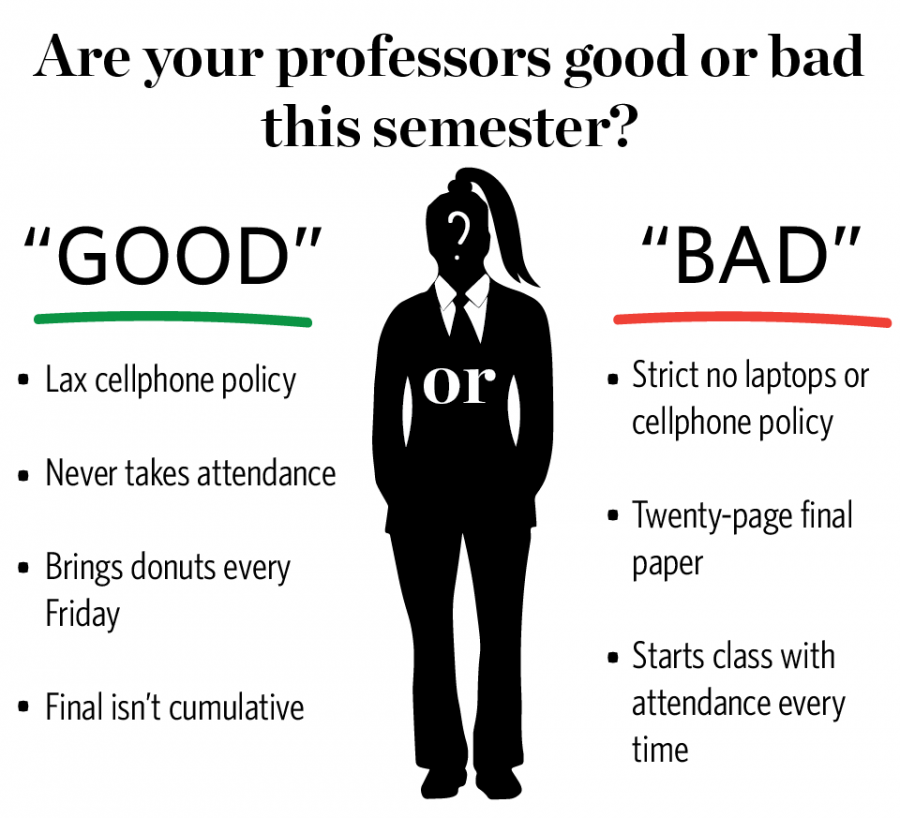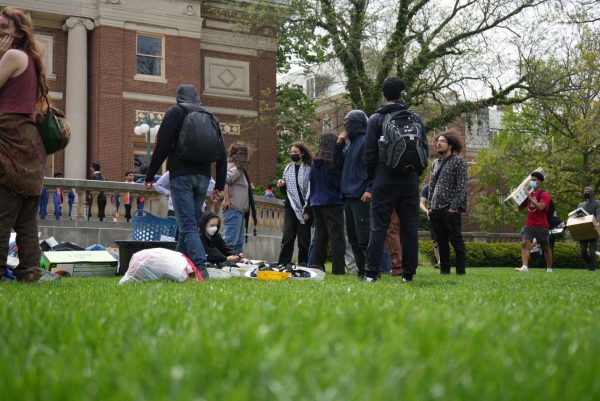Don’t judge your professors by faulty standards
January 22, 2018
As syllabus week draws to a close, many of us find ourselves stuck wondering just what kinds of professors we have this semester.
Will they be “good?” Will they be “bad?” Some of them might allow us the freedom to send as many “#bored” Snapchats as we want, and some might adhere to a strict ban on cellphones. Will they lecture until the world ceases to spin or force us to face the horror of active participation? There will be professors who believe in drowning students in homework and those who do exactly the opposite, trying to squeeze in one 15-page, make-or-break-your-grade essay into the semester.
All of these questions rattle around in our heads as we ponder how the semester will turn out. But what makes a professor “good” or “bad?” And yes, despite the constant verbal assaults of doubters suffered by my ears, there are bad teachers, just as there are bad students.
With the majority of the teaching methods listed above, the middle ground remains the least abhorrent, with the extremes leaving much to desire. It is often the most merciful for professors to lecture some while still leaving an opening for participation, for them to give multiple assignments without overloading students.
“Good” professors will usually find themselves traversing that middle path, somewhere between the two boundaries of these topics.
Get The Daily Illini in your inbox!
However, with some things, the adoption of an extreme policy might have a positive effect on the learning atmosphere. While intimidating, disconnecting from our mobile devices and our friends for an hour or so of learning helps provide an environment free of distraction, not only to you but also to those around you. Additionally, there have been scientific studies that have shown that students who do not have access to technology during class perform better on exams.
There is nothing more jarring than the ring of a cellphone or more distracting than the people next to you crushing virtual candies on their phones. It can break the concentration of even the most motivated students.
So, though a hassle and maybe even a bit intimidating, when a professor wants a cellphone-free lecture hall, it’s for the best. You will probably find that if your phone no longer provides a distraction, the annoying droning that emanates from your professor while you scroll through your Twitter feed might actually form understandable English words.
In your college career, you won’t like all of your professors. You might not even like any of them. But that doesn’t make them “bad” teachers.
“Bad” professors all have one thing in common: Their first priority isn’t teaching their students, it’s getting paid. Professors who do not make the effort to truly educate the pupils in their care, who do not provide the resources for their students to succeed, those can truly be dubbed “bad” teachers.
Luckily, these individuals are few and far between. While the bulk of professors have yet to perfect their craft, I have to believe that most of them do care and do give access to the necessary resources needed for success.
While a specific policy of one of your instructors might initially elicit dread, ask yourself honestly if the protocol might be for the best. Is this the sort of action a “good” professor would take? Is this instructor invested in my education and my academics as much as I am? Could this possibly help me to learn or help me to develop important skills in the long run?
The next time you think of using the term “good” or “bad” to define one of your professors, you should at least analyze the motives behind their methods to ensure the fairness of your assessment. Often you will find that those instructors previously classified as “bad” may have had too harsh a judge.
Lucas is a sophomore in Engineering.







